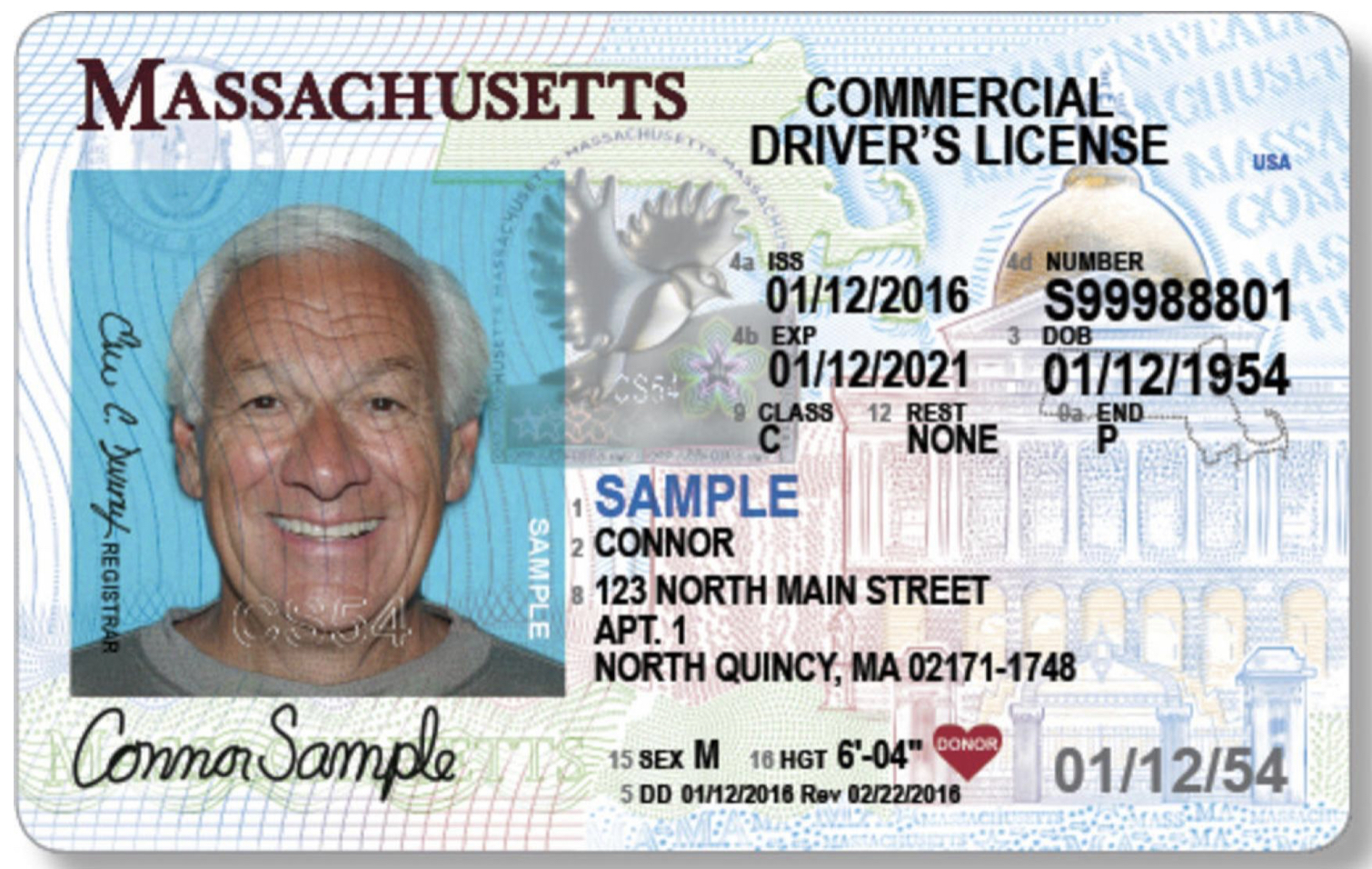Photo: Sample of a Massachusetts commercial drivers’ license. (Credit: mass.gov/rmv)
Current Massachusetts law provides that “no [driver’s] license of any type may be issued to any person who does not have lawful presence in the United States.“
A bill currently before the senate would change that sentence to read: “An applicant for a [driver’s] license … who does not provide proof of lawful presence, … , shall be eligible … if the applicant meets all other qualifications for licensure and provides satisfactory proof to the registrar of their identity, date of birth and Massachusetts residency.”
In other words, the bill would give licenses to people who cannot prove lawful presence in the United States, provided they can prove their residence and identity and pass the same tests that everyone else has to pass.
I plan to support the bill.
My fundamental view about immigration policy is that it is up to the federal government. It is not the concern of state and local government. However, one of the top concerns of state and local government is to assure that all drivers know the rules of the road and how to operate a vehicle safely. It is often necessary to drive and we are all safer if more of the people on our roads have the required training and insurance.
Some argue that to discourage illegal immigration, we should make life in Massachusetts as inconvenient and uncomfortable as possible for people without lawful immigrant status. I do not agree with that approach. We hurt ourselves when we isolate people in our midst. We benefit from immigrant labor in many occupations and we should treat all workers as well as we can.
Others express the valid concern that a driver’s license is an identification card and we do not want to facilitate the creation of false credentials. The bill gives this concern careful attention in two different ways.
First, the bill does not allow persons who cannot prove lawful presence to get a “Real-ID” which would get them into federal buildings and on to planes. Instead, they will get a card that is valid as a license to drive but is not valid for federal identification.
Second, applicants for a license who do not possess United States identity credentials like a U.S. passport will have to provide similarly rigorous foreign credentials — a foreign passport or an identity card issued by their consulate. In addition, they will have to provide a corroborating document like a license from another state or a birth certificate. At least one of the proferred documents must be a photo ID and at least one must include birth date.
Some have expressed the concern that since one can register to vote through the drivers license application process, the new law would allow non-citizens to vote. Again, the law specifically speaks to this, requiring the Registry of Motor Vehicles to “establish procedures … to ensure that an applicant for a Massachusetts license … who does not provide proof of lawful presence shall not be automatically registered to vote.” The law would not take effect for a year, allowing time to assure that these procedures are in place.
While the new law cements the requirement of procedures to protect the voter rolls, procedures are already in place according to the Secretary of State. He states on his website that “The RMV … collect[s] information about lawful presence in the United States and they will not submit names to local election officials of any persons they have determined are not U.S. citizens.” This is not a new concern. Currently many people who are not citizens but are lawfully present in the United States have drivers licenses: for example, a green card holder can get a license.
Similar legislation has been passed in 16 other states. The bill has the support of many law enforcement officers, including the Sheriffs of Middlesex County and Suffolk County, and the police chiefs of Cambridge, Belmont, and Watertown.
The Massachusetts House of Representatives has already voted for this bill by 120-36. I expect the Senate to take it up and I hope we are able to give it a similar strong endorsement and send it to the Governor’s desk.
Belmont resident Will Brownsberger is a Massachusetts state senator representing the Second Suffolk and Middlesex District that includes Belmont.








I think that’s ruge mistake, but the senators sould at least request a proof tax return from 05 years back.